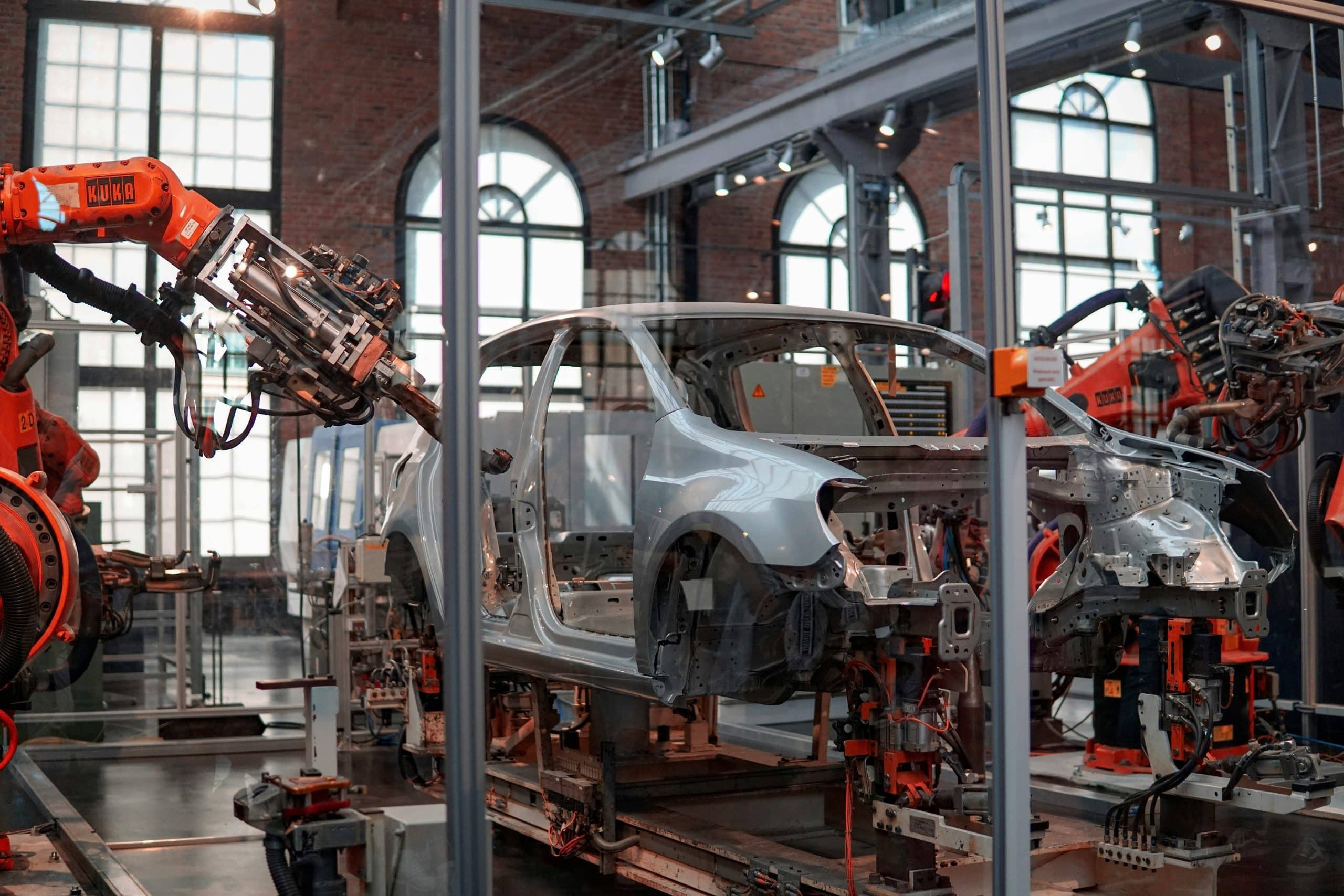How will ai impact the future of automotive design and manufacturing?

The automotive industry has always been a hotbed for technological innovation, driving the evolution of vehicles and our experience with them. As you navigate through the world of cars, it’s impossible not to notice the seismic shifts that are happening in real time. One of the most groundbreaking developments is the introduction of artificial intelligence (AI) in this space. From designing to manufacturing, AI is poised to revolutionize the entire automobile lifecycle. How, you might ask? Let’s delve into the details.
AI in Automotive Design
The process of designing vehicles has evolved significantly over the years. From hand-drawn sketches to 3D modeling, the industry has come a long way. Today, we stand on the precipice of another major shift, heralded by artificial intelligence.
Avez-vous vu cela : How is ai transforming the publishing and media industries?
AI technology has the potential to transform the entire design process. From drafting initial concepts to conducting feasibility analyses, AI can streamline and enhance these tasks. It can also help designers predict and integrate customer preferences, thereby creating a more personalized driving experience for the end-user.
Safety is another key area where AI can make a substantial impact. Machine learning algorithms can analyze vast amounts of data to predict possible safety issues and propose design modifications to mitigate them. In this way, AI can contribute to producing vehicles that are not only aesthetically appealing but also safe for the occupants and the environment.
Avez-vous vu cela : How will ai influence the future of urban public transport?
The Role of AI in Car Manufacturing
Once a vehicle design is finalized, it’s time to transition into the manufacturing phase. This is where the physical manifestation of the design takes shape. Traditionally, this process has been labor-intensive and time-consuming. However, with AI, the manufacturing landscape is changing rapidly.
Intelligent systems are now being employed to handle tasks that range from assembling parts to painting the cars. These systems can work tirelessly, with precision and consistency that far surpasses human capabilities. Furthermore, they can learn from their mistakes and continuously improve their performance, leading to a significant increase in both productivity and quality.
AI is also making it possible to implement predictive maintenance in the manufacturing process. By analyzing data from machine sensors, AI can predict equipment failures before they occur, allowing for timely interventions. This not only prevents costly downtimes but also extends the lifespan of the machinery.
Autonomous Cars: The Ultimate Application of AI
Perhaps the most exciting application of AI in the automotive industry is the advent of autonomous vehicles. These self-driving cars promise to redefine our experience on the roads.
AI plays an integral role in making autonomous driving a reality. It helps vehicles to understand their surroundings, make decisions and navigate the roads effectively. This involves complex tasks like identifying objects, predicting their movement, and planning the car’s path in real time.
Beyond efficiency and convenience, autonomous cars also have the potential to significantly improve road safety. Human error is the leading cause of road accidents, and autonomous cars, powered by AI, aim to eliminate this factor.
However, it’s important to note that we are still in the early stages of autonomous car development. While there have been significant strides in this field, there is still a long way to go before we can see fully autonomous cars in everyday use.
Ethical Considerations and Regulatory Challenges
As exciting as these technological advancements are, they also bring forth a range of ethical and regulatory challenges that need to be addressed.
For instance, who is responsible when an autonomous car gets into an accident? The driver, who is not actually driving, or the manufacturer, who programmed the car? These are complex issues that require clear legal frameworks.
Moreover, as AI becomes more integrated into our vehicles, concerns about privacy and data security are rising. Cars are becoming more connected, collecting and transmitting vast amounts of data. Ensuring this data is protected and used responsibly is paramount.
In conclusion, AI has the potential to redefine the automotive industry, from design and manufacturing to driving on the road. However, it’s important to navigate these new waters with caution, ensuring safety, ethics, and regulation are at the forefront of this revolution.
The Impact of AI on Quality Control and Supply Chain in Automotive Industry
Quality control and supply chain management have always been critical aspects in the automotive industry. However, with the advent of AI, these areas are experiencing profound changes.
AI and machine learning are playing key roles in ensuring quality control in car manufacturing. By applying machine learning algorithms, automotive companies are now able to identify and rectify faults in real-time during the manufacturing process. This real-time detection of anomalies helps to avoid costly recalls and enhances the overall reputation of the car manufacturer. In addition, AI assists in computer vision systems that inspect automotive parts, detect defects, classify them, and decide whether a part should pass or fail. This ensures a high level of precision and consistency, reducing errors and improving the quality of the final product.
Moreover, AI has revolutionized the supply chain in the automotive industry. By leveraging predictive analytics, companies can better forecast demand and manage inventory, thus reducing waste and optimizing resources. AI can also provide real-time tracking of goods, improving visibility and allowing for timely decision-making. Furthermore, the use of AI in logistics can automate and optimize routes, thereby enhancing efficiency and reducing environmental impact.
Regardless of these benefits, the integration of AI in quality control and supply chain also poses challenges. Technical issues, data security, and the need for skilled personnel are some of the hurdles that automotive companies need to overcome.
How AI is Driving the Future of Driver Assistance Systems
Driver assistance systems are another area within the automotive industry that is being significantly transformed by AI. These systems aim to enhance the overall driving experience by making vehicles safer and easier to operate.
Powered by AI, advanced driver-assistance systems (ADAS) can provide features like lane-keeping assist, automatic braking, and even autonomous driving. AI enables these systems to understand the vehicle’s surroundings, predict possible hazards, and make real-time decisions to avoid collisions.
For instance, in real-time, AI can analyze data from various sensors and cameras equipped in the car to detect obstacles, interpret traffic signs, and monitor blind spots. Consequently, this intelligence automotive technology can predict and alert the driver about potential risks, enhancing safety and decision-making while driving.
However, it’s worth mentioning that while AI-powered driver assistance systems can significantly improve safety and convenience, they are not infallible. Technical glitches, sensor failures, or unforeseen scenarios can still pose challenges. Hence, while AI is indeed driving the future of automotive safety, it’s crucial that we keep improving these technologies and manage their limitations effectively.
Wrapping Up
In essence, the impact of artificial intelligence on the future of the automotive industry is vast and multifaceted. It is redefining traditional processes and paving the way for revolutionary advancements like autonomous vehicles. AI is making significant strides in areas such as design, manufacturing, quality control, supply chain management, and driver assistance systems. The promise of increased efficiency, safety, and personalization that AI brings to the table is indeed exciting.
However, as we continue to navigate this new landscape, it’s crucial to address the challenges and ethical considerations that come with it. Data security, privacy, legal frameworks, and technical issues are aspects that need to be carefully managed. While AI-powered advancements in the automotive industry paint a promising future, it’s critical to ensure that safety, ethics, and regulation guide this revolution. After all, the ultimate goal is to enhance the driving experience while ensuring the wellbeing of all road users.
